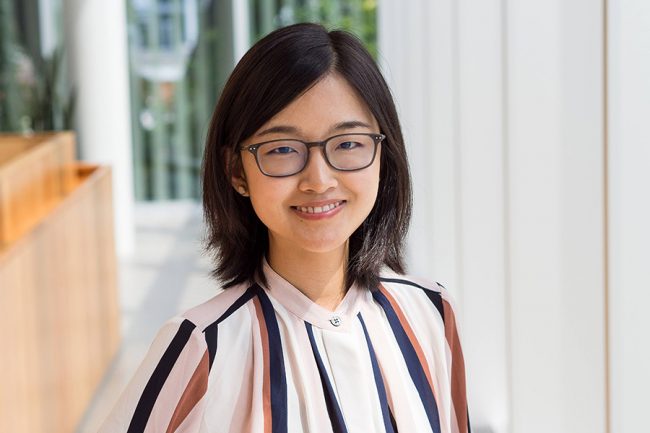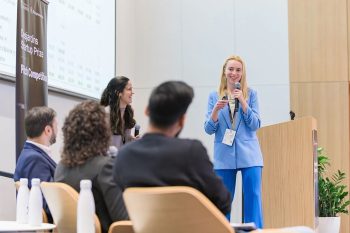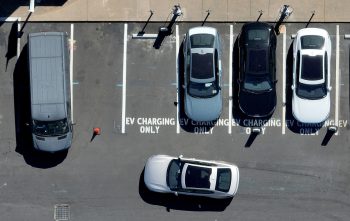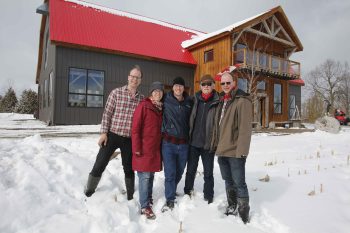Before Lyndia Wu (EngSci 1T1+PEY) even completed her final undergraduate year at U of T Engineering, she already knew her way around the inner workings of an MRI machine — and what she wanted to conquer next.
As part of her Professional Experience Year Co-op (PEY Co-op) at Sentinelle Medical Inc., Wu helped develop and test coils for MRI-based imaging technologies designed to detect breast cancer.
“One of the highlights was my first-ever work trip to GE Healthcare in Milwaukee, Wis. for MRI coil testing,” she says. “As an undergrad, it was exciting to have an opportunity be a part of a collaboration with a large industry partner like GE, and to get to visit their imaging facilities.”
The immersive experience helped her make a pivotal decision upon graduation: to continue pursuing a career in engineering for human health.
“Getting a continuous year of job experience — prior to graduation — was incredibly valuable,” says Wu. “It not only helped narrow down what I wanted to do for the rest of my life, it also made me realize that I needed to dig deeper into the biomedical field. I decided to go to grad school.”
Following the PEY Co-op, she spent a summer at the University Health Network (UHN) and completed an undergrad thesis on human factors applications — specifically, redesigning radiotherapy control interfaces.
After completing her PhD at Stanford University, she joined the University of British Columbia in 2018 as a research-stream assistant professor in mechanical engineering.
Wu’s work now focuses on investigating mild traumatic brain injuries. Her lab develops novel sensing techniques, mainly wearable sensors, to study the biomechanics of concussions.
“We are seeing more and more research on the potential devastating neurodegenerative effects of sports concussions,” she explains. “I strive to gain a better understanding of the disease so that we can one day design technologies to help diagnose and prevent the short and long-term effects of head trauma.”
Though she’s based on the west coast, she is still deeply rooted in U of T Engineering. “This summer, I’m hosting a stellar engineering science student in my lab,” she says of Christopher Knight (Year 3), who is conducting summer research as part of the Engineering Science Research Opportunities Program – Global (ESROP-Global).
Knight is researching electroencephalography (EEG) — which detects electrical activity in the brain via electrodes attached to the scalp — to study brain changes after head trauma.
Whether it’s pursuing summer research or PEY Co-op, Wu advocates for taking advantage of experiential learning opportunities during students’ undergraduate years. “You’ve got to go for it! You may be worried about spending an extra year, but trust someone who has been through it — a year of work experience is a lot more valuable than graduating early.”



